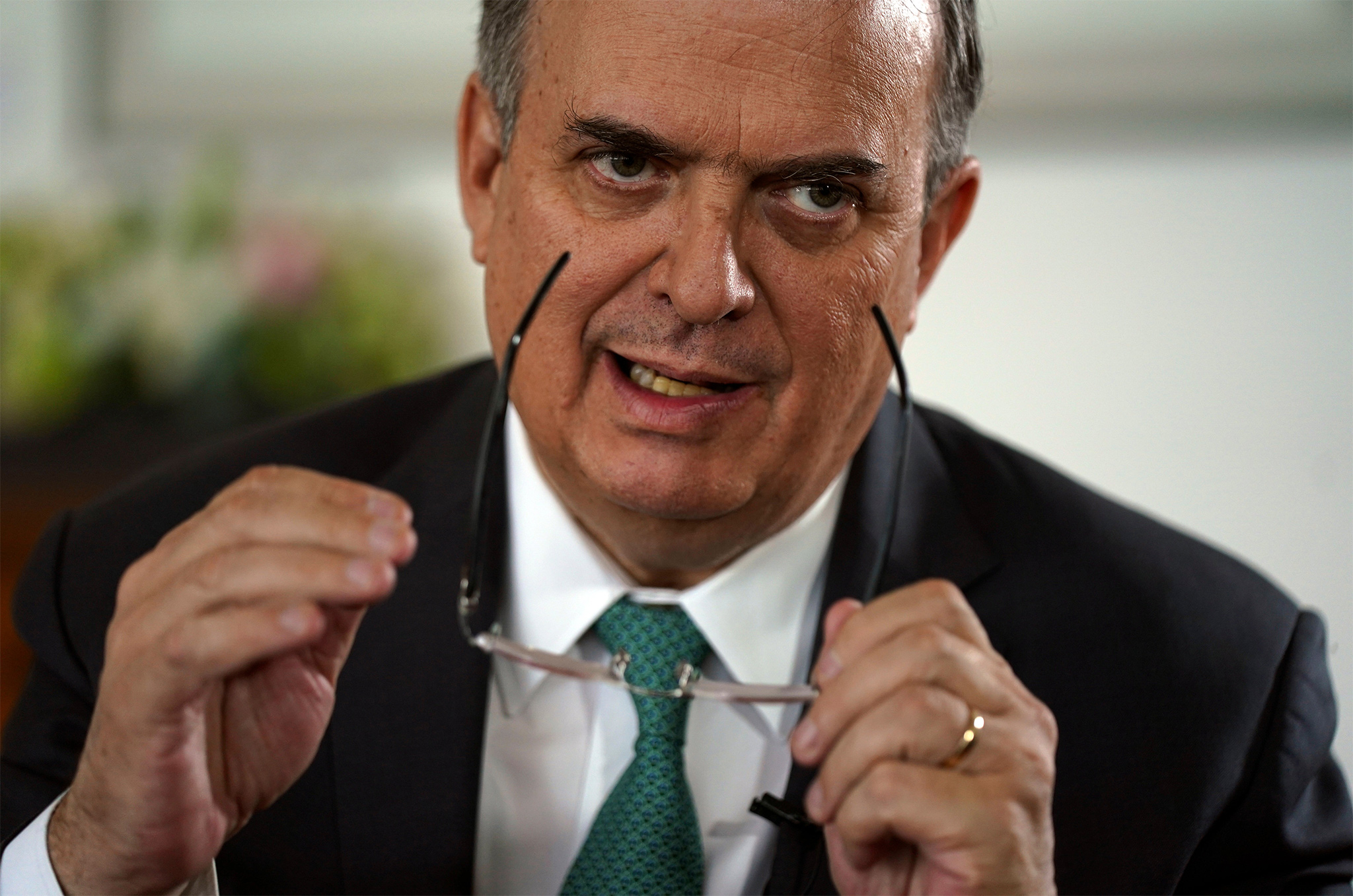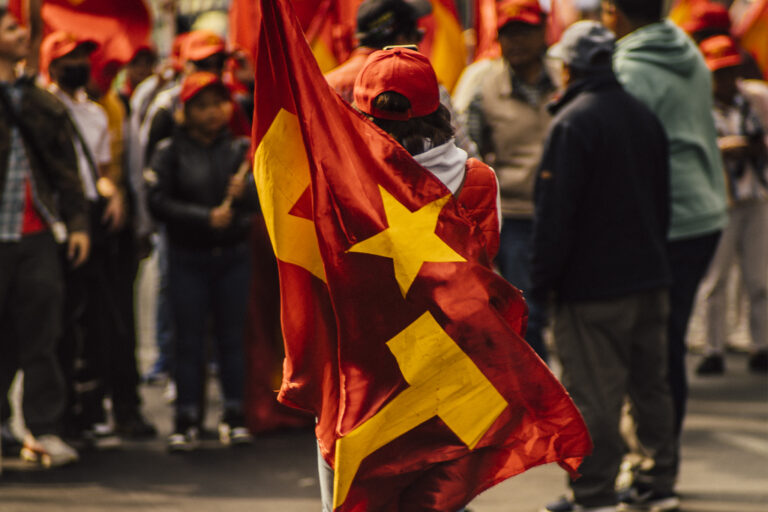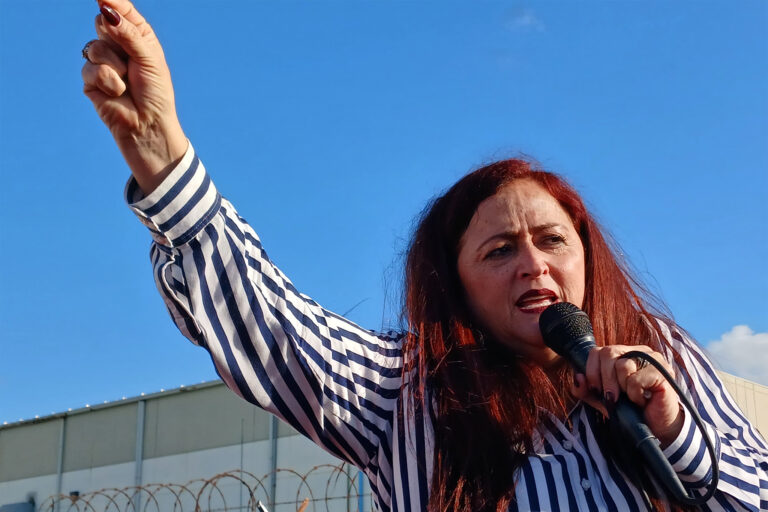Conversation was Cordial, but not “Between Friends,” Ebrard Admits
This article by Arturo Sánchez, Alma E. Muñoz and Braulio Carbajal appeared in the August 1, 2025 edition of La Jornada, Mexico’s premier left wing daily newspaper.
President Claudia Sheinbaum Pardo managed to persuade her US counterpart, Donald Trump, to accept 90 days to negotiate the long-term agreement on the 30 percent tariffs on Mexican products in a cordial conversation, but not among friends, because we do not have the same interests, Economy Secretary Marcelo Ebrard, part of the Mexican negotiating team, told La Jornada.
Other members, such as Foreign Minister Juan Ramón de la Fuente, highlighted the importance the Republican placed on negotiating with the President, as he was accompanied by the White House leadership. Among them were Vice President JD Vance and Secretary of State Marco Rubio, as Trump himself noted.
In an interview, Ebrard, a witness to the dialogue, commented that he didn’t feel the conversation between the two leaders was tense, despite the fact that they disagreed for most of the call. Trump wanted to launch his tariffs, as planned, in the first minute of this Friday, something the Mexican president firmly opposed, and therefore proposed the 90-day agreement.
I found it ingenious because it places Mexico at a high point, comparable only to China, and takes us to the end of the year, November, very close to the start of the review of the USMCA (United States-Mexico-Canada Agreement) in January.
With this agreement, he insisted, you’re already getting closer to getting us into the USMCA box and out of the unilateral tariff wilderness. He emphasized: the 90 days gained are worth gold.
Ebrard recounted that in his ninth conversation with Trump, Sheinbaum defended her points, displayed a sense of humor, and insisted on figures, for example, that Mexico is the United States’ largest importer. She seemed agile in her arguments.
What approach did you use to convince Trump?
“She won him over, and in the end, she pulled out that card and persuaded him. I think he listens to her, and they have a lot of mutual respect.”
It seems like nothing changes Trump’s mind.
“Well, it costs a lot.”
Mexico’s focus now is on reducing the 25 percent tariff on steel and aluminum, as well as other items, which seems difficult in the current environment.
Trump spoke with the Mexican president, surrounded by Vice President J.D. Vance, Secretary of State Marco Rubio, Secretary of Treasury Scott Bessent, Secretary of Commerce Howard Lutnick, U.S. Trade Representative Jamieson Greer, Chief of Staff Susie Wiles, and National Security Advisor Stephen Miller.
At the morning press conference, which they attended to accompany President De la Fuente and the head of North America, Roberto Velasco—who also attended the call as part of the negotiating team—Ebrard emphasized that with what was achieved yesterday, Mexico went from being at risk of losing the USMCA to consolidating an advantageous position toward a long-term agreement with Washington in just a few months, following the negotiation strategy Sheinbaum Pardo established with Trump.
The Secretary of Economy recalled that last January, Mexico faced a critical situation: the threat of all its trade with the United States being subject to a general 25 percent tariff, equivalent to operating without a treaty.
The situation meant that our country was practically excluded from the preferential conditions of the USMCA, but thanks to the negotiations led by the head of the Executive Branch, 84.4 percent of Mexican exports remain protected by the agreement and without additional tariffs, Ebrard stated, as he later did before business leaders at the Made in Mexico, Minds in Action ceremony.
The official emphasized that no other country, except Canada, has received similar treatment in the face of the Trump administration’s trade measures. All of this was achieved without any additional concessions from Mexico, which underscores the effectiveness of the strategy adopted.
He added that the next 90 days will be crucial to address issues that continue to cause friction, such as Mexico’s non-tariff barriers to U.S. trade, which encompass technical regulations, labor standards, rules of origin, and intellectual property.
Trade isn’t defined solely by tariffs; it’s also defined by conditions that determine how goods and services flow. What we’re doing today is preparing the next chapter of the USMCA, heading into the 2026 review, he explained.
Ebrard rejected the idea that tariff threats undermine investment, saying the President has demonstrated she can resolve the issue.
-
Workers Party Claims Sheinbaum Electoral Reform Will Eliminate Party System
The socialist party’s leader recalled the democratic spaces that the left managed to conquer with the 1977 & 1996 reforms, a “fruit of countless struggles, repressions, imprisonments, disappearances and even armed uprisings.”
-
Anti-FIFA Challenge: Football Defends the Territory
Mexico City residents are organizing Anti-World Cup Days to protest water theft and gentrification that have accompanied preparations for the World Cup, put on by the corrupt, international criminal consortium known as FIFA.
-
Tridonex Strike in Matamoros to Start March 6th
1,300 workers are expected to strike, demanding the company fulfill its obligation to pay workers in full. Tridonex is owned by First Brands, the US autoparts corporation accused of massive fraud.




